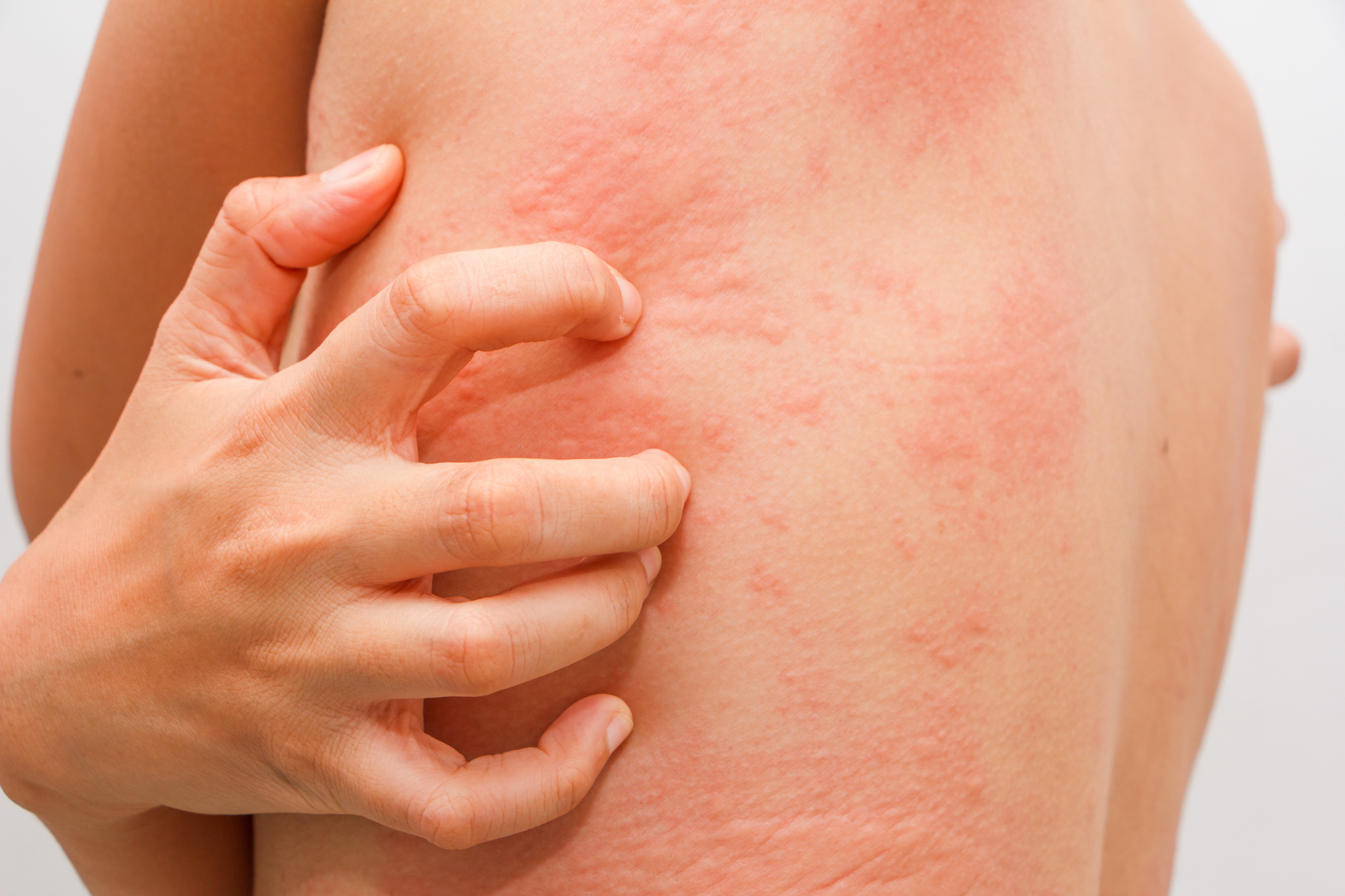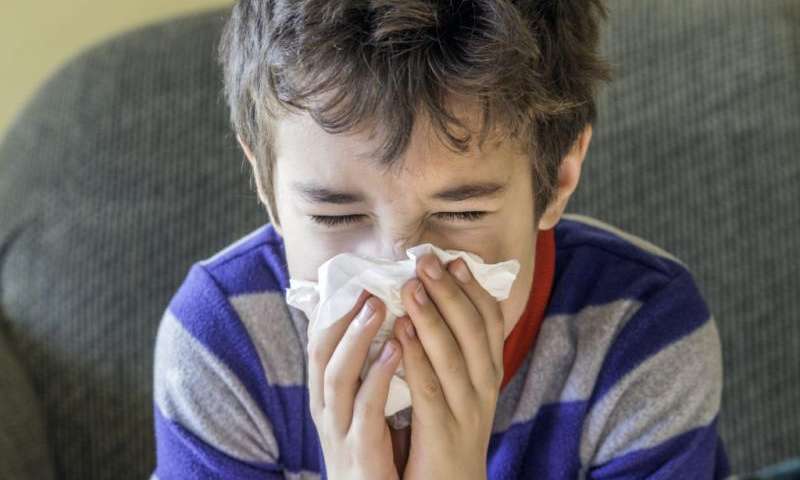Overview
Your immune system is responsible for defending the body against bacteria and viruses. In some cases, your immune system will defend against substances that typically don’t pose a threat to the human body. These substances are known as allergens, and when your body reacts to them, it causes an allergic reaction.
You can inhale, eat, and touch allergens that cause a reaction. Doctors can also use allergens to diagnose allergies and can even inject them into your body as a form of treatment.
The American Academy of Allergy, Asthma & Immunology (AAAAI) reports that as many as 50 million people in the United States suffer from some type of allergic disease.
What causes an allergic reaction?
Doctors don’t know why some people experience allergies. Allergies appear to run in families and can be inherited. If you have a close family member who has allergies, you’re at greater risk for developing allergies.
Although the reasons why allergies develop aren’t known, there are some substances that commonly cause an allergic reaction. People who have allergies are typically allergic to one or more of the following:
- pet dander
- bee stings or bites from other insects
- certain foods, including nuts or shellfish
- certain medications, such as penicillin or aspirin
- certain plants
- pollen or molds
What are the symptoms of an allergic reaction?
The symptoms of an allergic reaction can vary from mild to severe. If you become exposed to an allergen for the first time, your symptoms may be mild. These symptoms may get worse if you repeatedly come into contact with the allergen.
Symptoms of a mild allergic reaction can include:
- hives (itchy red spots on the skin)
- itching
- nasal congestion (known as rhinitis)
- rash
- scratchy throat
- watery or itchy eyes
Severe allergic reactions can cause the following symptoms:
- abdominal cramping or pain
- pain or tightness in the chest
- diarrhea
- difficulty swallowing
- dizziness (vertigo)
- fear or anxiety
- flushing of the face
- nausea or vomiting
- heart palpitations
- swelling of the face, eyes, or tongue
- weakness
- wheezing
- difficulty breathing
- unconsciousness
A severe and sudden allergic reaction can develop within seconds after exposure to an allergen. This type of reaction is known as anaphylaxis and results in life-threatening symptoms, including swelling of the airway, inability to breathe, and a sudden and severe drop in blood pressure.
If you experience this type of allergic reaction, seek immediate emergency help. Without treatment, this condition can result in death within 15 minutes.
How is an allergic reaction diagnosed?
Your doctor can diagnose allergic reactions. If you experience symptoms of an allergic reaction, your doctor will perform an exam and ask you about your health history. If your allergic reactions are severe, your doctor may ask you to keep a journal that details your symptoms and the substances that appear to cause them.
Your doctor may want to order tests to determine what’s causing your allergy. The most commonly ordered types of allergy tests are:
- skin tests
- challenge (elimination-type) tests
- blood tests
A skin test involves applying a small amount of a suspected allergen to the skin and watching for a reaction. The substance may be taped to the skin (patch test), applied via a small prick to the skin (skin prick test), or injected just under the skin (intradermal test).
A skin test is most valuable for diagnosing:
- food allergy (like shellfish or peanuts)
- mold, pollen, and animal dander allergy
- penicillin allergy
- venom allergy (such as mosquito bites or bee stings)
- allergic contact dermatitis (a rash you get from touching a substance)
Challenge testing is useful in diagnosing food allergies. It involves removing a food from your diet for several weeks and watching for symptoms when you eat the food again.
A blood test for an allergy checks your blood for antibodies against a possible allergen. An antibody is a protein your body produces to fight harmful substances. Blood tests are an option when skin testing isn’t helpful or possible.
How is an allergic reaction treated?
If you experience an allergic reaction and you don’t know what’s causing it, you may need to see your doctor to determine what the cause of your allergy is. If you have a known allergy and experience symptoms, you may not need to seek medical care if your symptoms are mild.
In most cases, over-the-counter antihistamines, such as diphenhydramine (Benadryl), can be effective for controlling mild allergic reactions.
If you or someone you know experiences a severe allergic reaction, you should seek emergency medical attention. Check to see if the person is breathing, call 911, and provide CPR if needed.
People with known allergies often have emergency medications with them, such as an epinephrine auto-injector (EpiPen). Epinephrine is a “rescue drug” because it opens the airways and raises blood pressure. The person may need your help to administer the medication. If the person is unconscious, you should:
- Lay them flat on their back.
- Elevate their legs.
- Cover them with a blanket.
This will help prevent shock.
What is the long-term outlook?
If you have a known allergy, preventing an allergic reaction will improve your outlook. You can prevent these reactions by avoiding the allergens that affect you. If you have serious allergic reactions, you should always carry an EpiPen and inject yourself if symptoms occur.
Your outlook will also depend on the severity of your allergy. If you have a mild allergic reaction and seek treatment, you’ll have a good chance of recovery. However, symptoms may return if you come into contact with the allergen again.
If you have a severe allergic reaction, your outlook will depend on receiving quick emergency care. Anaphylaxis can result in death. Prompt medical care is necessary to improve your outcome.
How can you prevent an allergic reaction?
Once you identify your allergy, you can:
- Avoid exposure to the allergen.
- Seek medical care if you’re exposed to the allergen.
- Carry medications to treat anaphylaxis.
You may not be able to avoid an allergic reaction completely, but these steps can help you prevent future allergic reactions.





